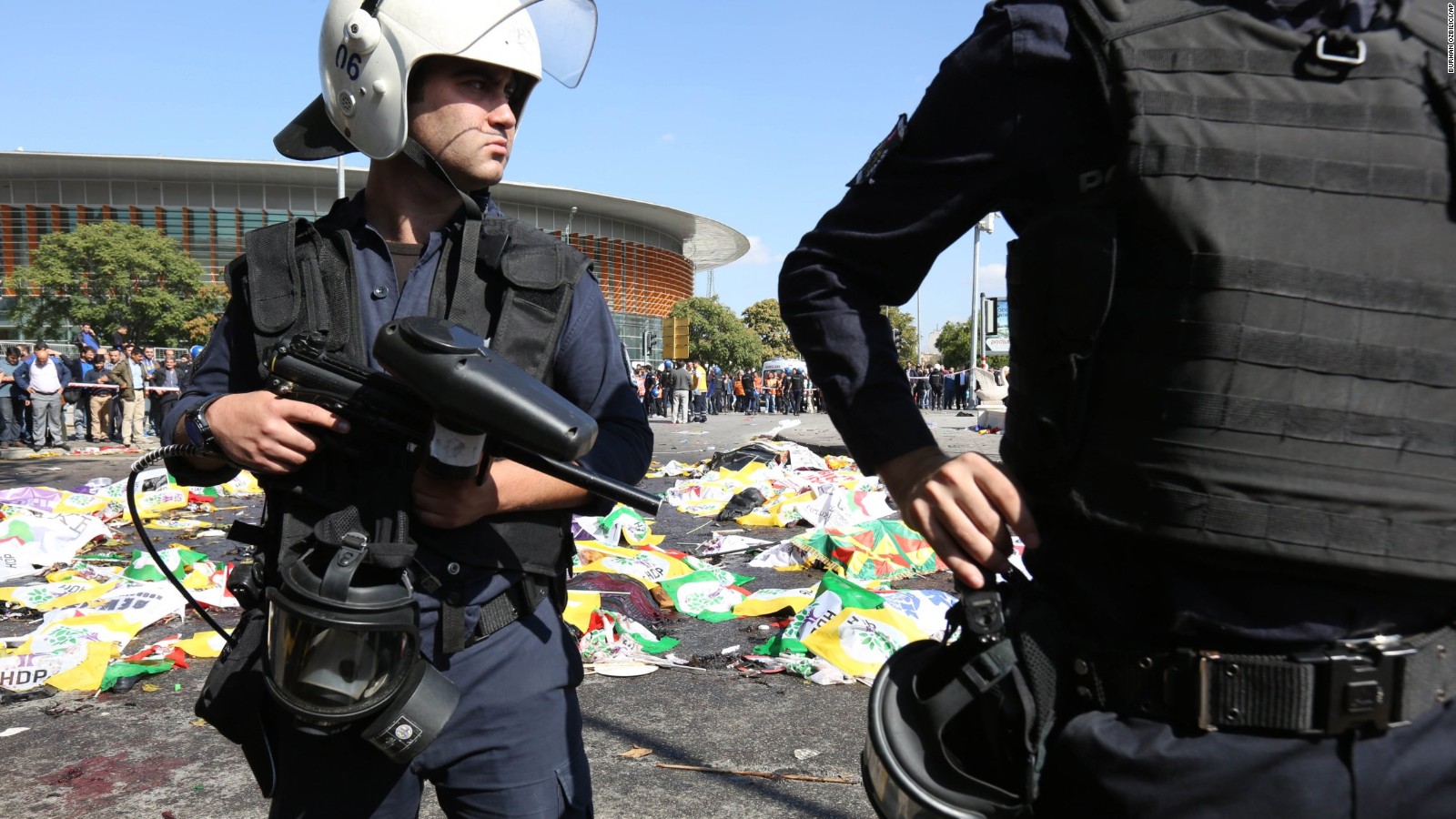
Shock, 'somber' mood at Ankara blast site 02:22
Story highlights
- Bombings in Turkey claimed at least 95 lives on Saturday
- Soner Cagaptay: Watching Turkey today is like watching a disaster unfold
Soner Cagaptay is the Beyer Family Fellow and director of the Turkish Research Program at The Washington Institute, and author of 'The Rise of Turkey: The Twenty-First Century's First Muslim Power.' The views expressed are solely those of the author.
(CNN)Saturday's attack in the Turkish capital
is as close to Turkey's 9/11 as the country has gotten. Twin bombings
in downtown Ankara, across from the city's busy central train station
and only minutes from key government buildings, killed at least 95
people and injured hundreds more. It is, in short, the worst terror
attack in the country's history.
The
massacre is saddening and shocking, all the more so because it runs
counter to the perception of Turkey as relatively stable and peaceful.
Although it borders the tumultuous Middle East, Turkey has a vibrant economy, a large middle class and democratic governance. Violence of this magnitude is unprecedented in the country's modern politics.
But
troubling as this weekend's attack is in and of itself, it also comes
at a time of increasing polarization, both socially and politically --
divisions that are being exacerbated by the very personal nature of
President Recep Tayyip Erdogan's rule.
Since coming to power in 2003,
Erdogan has run the country through his Justice and Development Party
(AKP), winning successive elections. But while his ultra-conservative,
right wing approach has delivered economic growth, there has been a dark
side to his rule.
The truth is that Erdogan brutalizes the political opposition, while critics are jailed and police are sent to violently crack down
on opposition rallies. As a result, Erdogan has established a strong
right wing base, but has generated significant animosity among the large
segment of the population that does not support him.
Still, with the country's opposition divided, Erdogan's AKP has dominated the legislature. But in June 7 elections, the AKP also lost its outright majority in parliament as the pro-Kurdish Peoples' Democratic Party (HDP) surged in the polls, leaving the country in limbo.
Snap elections, to be held November 1,
were expected to do little to ease the political deadlock, and the
Ankara attack is unlikely to change things much either, because
political polarization over Erdogan trumps all other considerations --
few people in the pro- and anti-AKP camps are likely to change their
ballots, despite the carnage on Saturday.
What
makes these deep divisions so worrying is that they exist at a time
when the country faces growing security challenges in its neighborhood,
namely Bashar al-Assad's brutal Syrian regime, and the Islamic State of
Iraq and Syria (ISIS).
Since the beginning of the Syrian civil war in 2011, Ankara has been trying in vain to oust al-Assad, whose regime was accused by Turkey of being tied to the 2013 bombing of Reyhanli, a Turkish town near the Syrian border, which claimed more than 50 lives.
With
al-Assad's forces now being bolstered by Russia, Ankara has even more
to fear from Syria. But it is also concerned about ISIS, especially
since Ankara joined the U.S.-led fight against ISIS this past summer, a
move that followed an ISIS attack on Suruc,
another Turkish city near the Syrian border. Unfortunately, it is only
a question of when, not if, ISIS will attack Turkey again.
Finally, Ankara also has to contend with the Kurdistan Workers Party (PKK), which has been battling Ankara. The PKK has blamed Ankara for not doing enough to prevent the twin bombings in Suruc,
an attack that was eerily similar to the Ankara attack, which also
targeted a rally. True, the PKK stuck to its pre-planned announcement on
Saturday of a ceasefire.
But it is yet to be seen if the PKK's aging leadership can maintain its
grip on the movement's young and more radical cadres.
Ultimately,
though, Turkey has to fear itself as much as anything else. Unlike
9/11, which drew the United States together, the Ankara attack is
likely to leave Turkey divided, with pro-Erdogan groups blaming the PKK
for the Ankara massacre and anti-Erdogan groups blaming the government.
And while Turkey could prevail against al-Assad, the PKK, or ISIS, it
cannot win a fight against itself.
As a
result, watching Turkey today is like watching a disaster unfold in
slow motion, with the country increasingly looking like it is coming
apart at the seams. I truly hope I am wrong. But the future looks bleak.

Δεν υπάρχουν σχόλια:
Δημοσίευση σχολίου